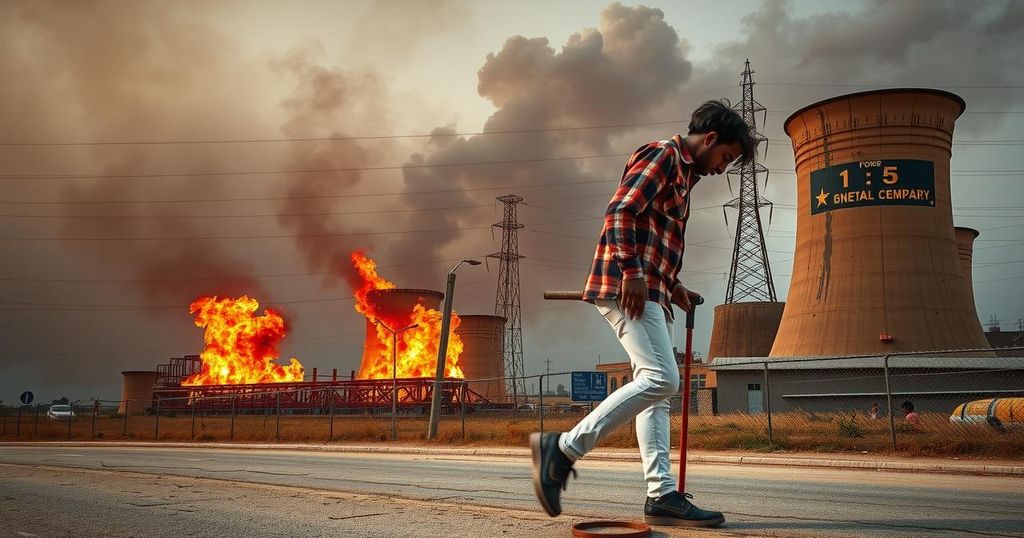Mozambique’s Post-Election Protests Cause Severe Energy Supply Disruption
Post-election protests in Mozambique have paralyzed two power plants as demonstrators condemn the ruling Frelimo party’s alleged fraudulent electoral victory. Tensions escalated, leading to significant energy supply disruptions in the southern region and loss of life amid violent clashes. The opposition contests the official results, asserting inconsistencies in vote counts. Intermittent border closures with South Africa have also occurred in response to ongoing unrest.
Post-election protests in Mozambique have resulted in the shutdown of two critical power plants, according to the national utility. The protests erupted following the ruling Frelimo party’s declaration of victory in the October 9 elections, a result that has been widely condemned as fraudulent by opposition parties. Demonstrators targeted the Ressano Garcia and Gigawatt thermoelectric plants, demanding an end to energy production, prompting Electricidade de Mocambique to halt operations out of concern for the potential repercussions.
This interruption has caused a supply capacity reduction estimated at 30 percent for the southern region of Mozambique, which is home to approximately six million residents. Video evidence shared on social media indicates significant traffic disruptions around the affected areas. Additionally, the South African Border Management Authority reported intermittent closures of the border in response to the situation. Restrictions in the capital, Maputo, have also been observed, varying significantly across different districts.
The unrest intensified after opposition figure Venancio Mondlane alleged an assassination attempt against him, marking the second claimed incident since the elections. Mondlane, who sought refuge in South Africa, contests the electoral results that indicate Frelimo’s candidate, Daniel Chapo, secured nearly 71 percent of the votes. In contrast, Mondlane asserts that independent counts suggest he received 53 percent of the votes, while Chapo garnered only 36 percent. The Constitutional Council of Mozambique is anticipated to confirm the election outcomes ahead of the upcoming inauguration in January.
Such political turmoil has led to violent clashes in the country, with a civil society group reporting that at least 90 individuals have lost their lives since protests commenced on October 21. International observers have noted significant irregularities during the electoral process, further compounding the unrest as opposition supporters continue to voice their dissent and challenge the legitimacy of the electoral results.
The political landscape in Mozambique is marked by the longstanding dominance of the Frelimo party, which has governed since the country gained independence in 1975. The recent electoral process has sparked significant controversy, with allegations of fraud and intimidation emerging from opposition groups. These tensions are reflective of a broader pattern of civil unrest in Mozambique, often ignited by electoral disputes and governmental practices perceived as undemocratic. The protests and subsequent violence following the elections highlight the stability challenges facing Mozambique, as the population reacts strongly against the ruling party’s policies and electoral outcomes.
In conclusion, the post-election protests in Mozambique have significantly disrupted energy production and exacerbated civil unrest. With the ruling party’s contested victory and alarming allegations of violence against opposition members, the situation remains precarious. The forthcoming confirmation of the election results by the Constitutional Council may either mitigate or intensify the ongoing discontent. The international community continues to observe the developments closely, urging for a peaceful resolution to the crisis.
Original Source: www.barrons.com




Post Comment